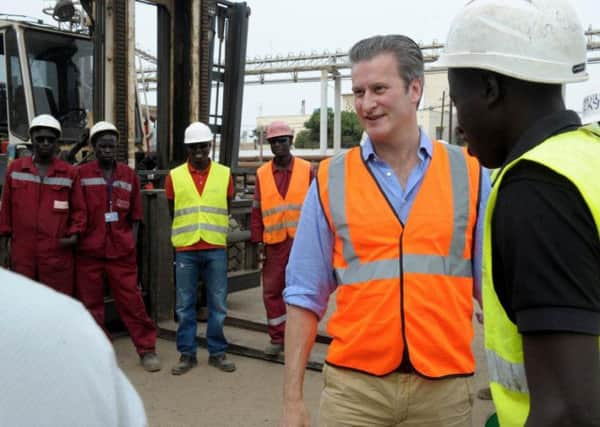Cairn raises Senegal estimates as losses halve


In the wake of a successful appraisal well at the SNE field, about 60 miles offshore Senegal, the Edinburgh-based firm today said its best estimate of contingent resources has risen by 20 per cent to 385 million barrels.
Chief executive Simon Thomson told The Scotsman: “There’s a lot going on and it’s all good – we’re really pleased with where we got to, because we estimated pre-drill that it was maybe a 185 million barrel field. We’re now more than double that and we believe there’s a strong potential for that to rise further.”
Advertisement
Hide AdAdvertisement
Hide AdThe update came as Cairn said its operating losses for 2015 had more than halved to $178.7 million (£125m), down from $372.3m the previous year.
Thomson said: “We are delighted with the results to date of our multi-well evaluation programme offshore Senegal, which has confirmed the scale and extent of the significant resource base in this world class asset.
“A combination of financial strength and continued exposure to material growth opportunities leaves Cairn well placed to deliver additional value for shareholders from its balanced portfolio.”
However, the company remains locked in a $1.6bn dispute with India’s tax authorities over its remaining 10 per cent stake in Cairn India, which it cannot sell while the case is ongoing. Its shareholding in the business was valued at $1bn at the end of 2013, but has since slumped in value to $384m.
Cairn added: “International arbitration proceedings have commenced with the government of India to seek resolution of the ongoing retrospective tax dispute. Our claim also seeks to recoup in full the value of which we have been deprived, approximately $1bn.”
Turning to the North Sea, Thomson said there were a number of projects that are “underwater at the current oil price”, but other developments such as Catcher and Kraken – due to produce first oil next year – were profitable at current prices.
He said: “There are many different classes of assets within the North Sea, and our job is to focus on the attractive assets.”
Cairn last month raised its stake in the huge Kraken field to 29.5 per cent through a deal with First Oil & Gas ahead of the latter’s slide into administration.
Advertisement
Hide AdAdvertisement
Hide AdChairman Ian Tyler, the former chief executive of infrastructure group Balfour Beatty, said the explorer was now looking forward to an “exciting year” following a “very busy” 2015.
In terms of tomorrow’s Budget, Thomson said there were three key themes that Cairn, and the wider oil industry, would like to see Chancellor George Osborne address.
“One is tax reductions, but just as important is stimulation for exploration activity and then some form of mechanism to deal with the burden of abandonment, because until something’s done about that it’s going to be very difficult to stimulate further investment and deal flow.”
